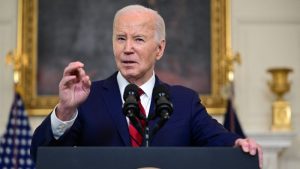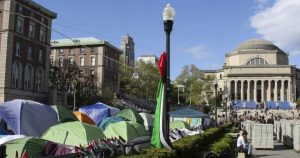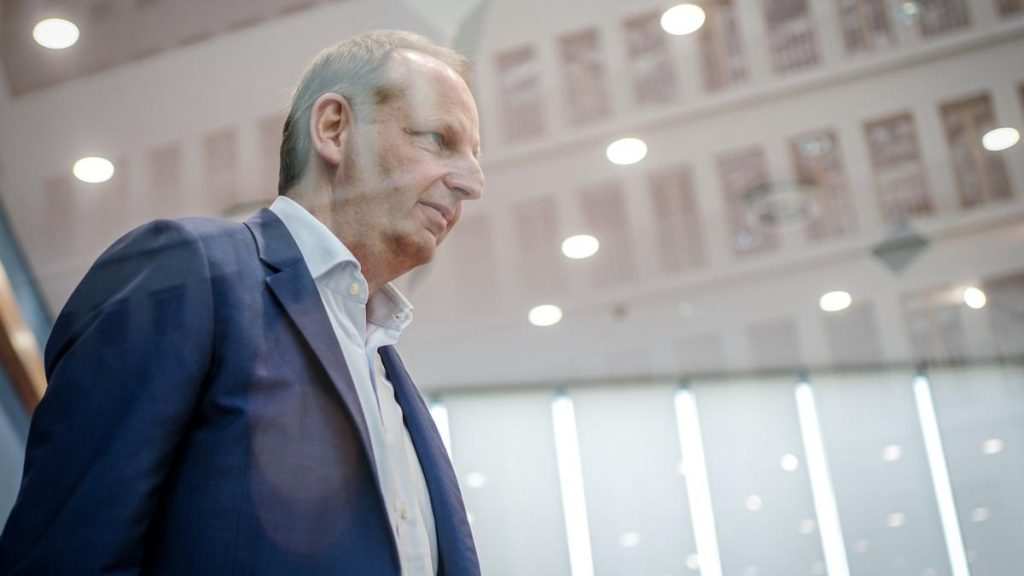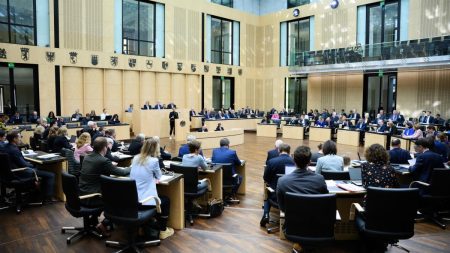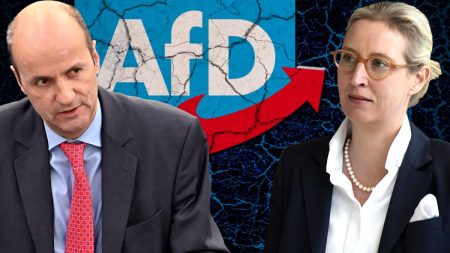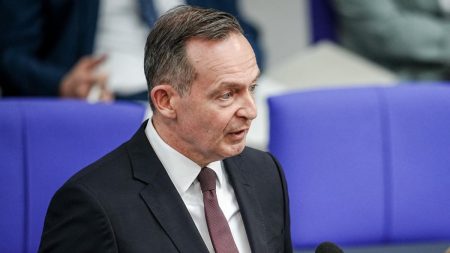CDU-Bundestagsabgeordnete Thomas Heilmann zieht erneut vor das Bundesverfassungsgericht, um die Reform des Klimaschutzgesetzes der Ampelregierung zu stoppen. Er beantragte eine einstweilige Anordnung zur Verhinderung der Verabschiedung des Gesetzes, das eine grundlegende Neuausrichtung des Klimaschutzes vorsieht. Heilmann kritisiert das zu schnelle Gesetzgebungsverfahren und befürchtet eine Schwächung des Klimaschutzes. Die Reform soll die Kontrolle der Klimaziele in die Zukunft richten und sektorübergreifend implementieren, um sicherzustellen, dass Deutschland bis 2030 seinen Treibhausgas-Ausstoß um mindestens 65 Prozent im Vergleich zum Jahr 1990 senkt.
Die geplante Reform sieht vor, dass die Bundesregierung nachsteuern muss, wenn sie ihr Klimaziel für das Jahr 2030 nicht erreicht. Bis 2040 sollen die Treibhausgase um 88 Prozent sinken und bis 2045 soll Treibhausgasneutralität erreicht werden. Künftig wird der deutsche Gesamtausstoß an CO₂ stärker berücksichtigt und die Bundesregierung ist für die Einhaltung der Klimaziele als Ganzes verantwortlich. Umweltverbände kritisieren die Reform als Verwässerung der geltenden Regeln und bemängeln, dass zusätzliche Klimaschutzanstrengungen erst ab 2030 vorgeschrieben sind. Zudem sollen Daten für den Zeitraum 2031 bis 2040 erst ab 2029 veröffentlicht werden, was Bedenken hinsichtlich des Nachsteuerns aufwirft.
Thomas Heilmann und andere Kritiker sehen die geplanten Änderungen als zu weitreichend an und fordern mehr Zeit für die Abgeordneten, um die Reform zu prüfen. Die Deutsche Umwelthilfe befürchtet, dass der Klimaschutz in die Zukunft verschoben wird und einzelne Ministerien weniger stark für die Erreichung der Ziele in ihrem Verantwortungsbereich zur Verantwortung gezogen werden. Die Grüne Irene Mihalic weist die Bedenken der Opposition zurück und betont, dass das Gesetzgebungsverfahren wie geplant durchgeführt werden kann. Das Bundesverfassungsgericht stoppte im vergangenen Sommer bereits das Heizungsgesetz aufgrund von Heilmanns Kritik am engen Zeitplan. Das Gesetz wurde später dennoch vom Bundestag verabschiedet.
Heilmanns Antrag auf eine einstweilige Anordnung zur Verhinderung der Verabschiedung der Reform des Klimaschutzgesetzes wird am Bundesverfassungsgericht in Karlsruhe verhandelt. Er argumentiert, dass die geplanten Änderungen zu schnell vorangetrieben werden und zu einer Schwächung des Klimaschutzes führen könnten. Die Reform soll sicherstellen, dass Deutschland seine Klimaziele bis 2030 erreicht und langfristig Treibhausgasneutralität erlangt. Die Debatte über die Reform des Klimaschutzgesetzes zeigt die kontroverse Diskussion über die Maßnahmen zur Bekämpfung des Klimawandels und die Rolle der Regierung und einzelner Ministerien bei der Umsetzung dieser Maßnahmen.
Die Ampel-Regierung plant grundlegende Änderungen im Klimaschutzgesetz, um sicherzustellen, dass Deutschland seine internationalen Verpflichtungen zur Reduzierung von Treibhausgasemissionen einhält. Kritiker warnen jedoch vor möglichen Schwächen in der Umsetzung und fordern eine gründlichere Prüfung der vorgeschlagenen Reform. Die Entscheidung des Bundesverfassungsgerichts über Heilmanns Antrag wird Auswirkungen auf die zukünftige Klimapolitik in Deutschland haben und möglicherweise weitere Diskussionen über die Umsetzung von Klimaschutzmaßnahmen in verschiedenen Sektoren der Wirtschaft und des öffentlichen Lebens auslösen.




